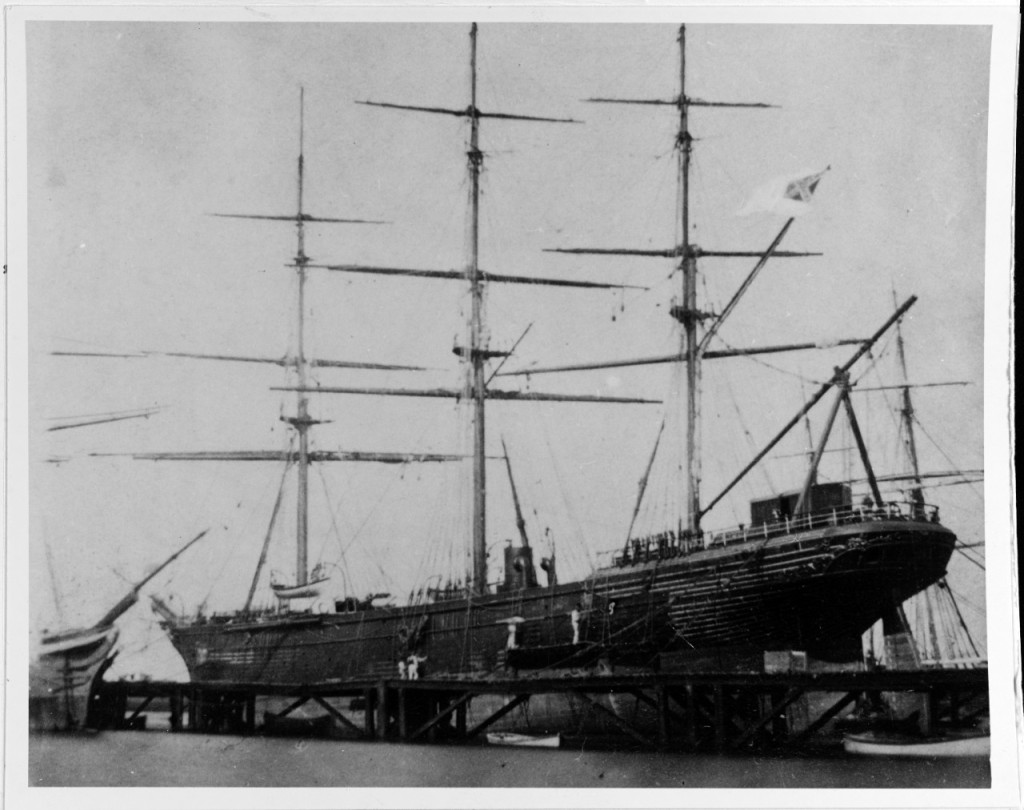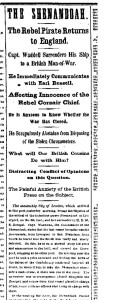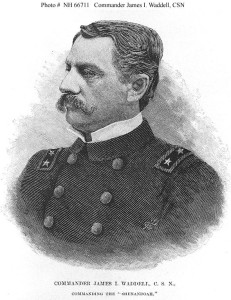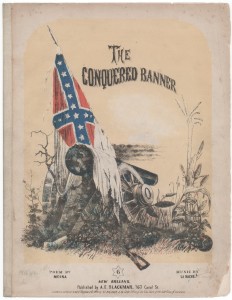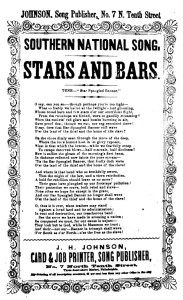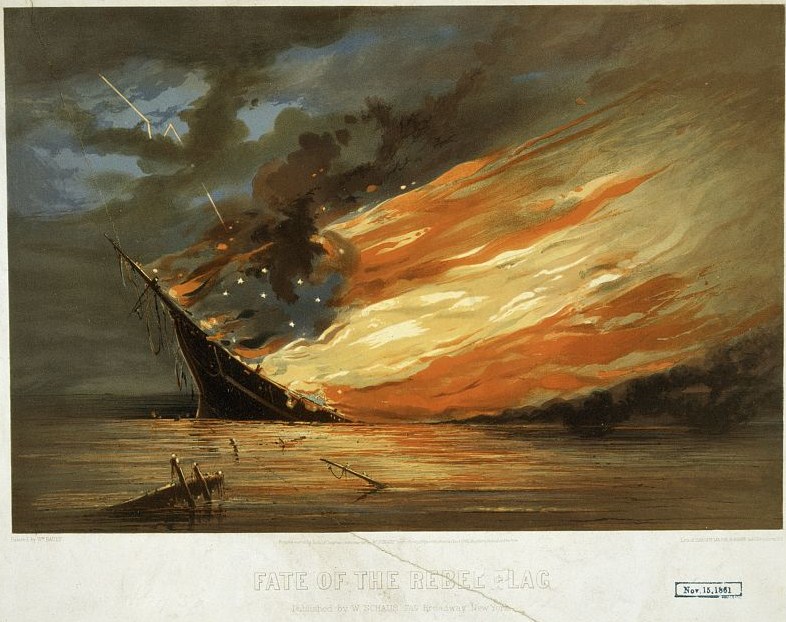On November 5, 1865 the CSS Shenandoah docked at Liverpool in England. 150 years ago today:
Lieutenant James I. Waddell surrenders the CSS Shenandoah
to British authorities. His is the final Confederate flag struck. After a few days in confinement, the crew is released to British authorities. Shenandoah is subsequently turned over to U.S. minister Charles F. Adams, who sells the vessel to the Sultan of Zanzibar. Waddell, meanwhile, is reviled by the American government as the “Anglo-American Pirate Captain,” which induces him to remain in England until 1875.[1]
The Confederacy angled for British and French intervention especially during the first half of the war, something like the original American rebels got bailed out by France. Of course, that never happened, but the last Confederate surrender did occur in Liverpool. A Northern paper editorialized that the British would have to decide if the Shenandoah was privateer or pirate.
From The New-York Times November 21, 1865:
The Pirate Shenandoah.
The Shenandoah, like a good many other rebel curses, has gone “home to roost.” She turned up one fine morning in the port of Liverpool, carrying the rebel flag, and was, surrendered by her Commander to an English man of war.
It will be seen by the extracts from English papers which we publish elsewhere, that her welcome is by no means cordial. It has ceased to be for British interests, and has therefore become immoral, to welcome the rebel flag and fete the Captains of rebel privateers. The English, moreover, feel that the untimely arrival of the Shenandoah involves them in new and somewhat embarrassing responsibilities. It is susceptible of proof, we believe, that the Captain of this vessel, long after he had received authentic information of the termination of the war, pursued his career of plundering and burning peaceful and unarmed vessels, and that fifty or sixty whalers thus fell victims to his cowardly prowess in the Arctic seas. He claims to have received official intelligence of the close of the war only on the 30th of August; but what particular form and style of information is requisite to check the black and bloody cruise of a privateer, it will now become the duty of English law courts to determine.
The responsibility of dealing with WADDELL devolves wholly on the British Government. If he was in command of a privateer, duly exercising belligerent rights, England cannot surrender him, nor shall we ask her to do so. If, on the contrary, he pursued his career of devastation after those rights had ceased to protect him, he became simply a pirate, and violated the laws of Great Britain quite as truly as those of the United States. And it devolves upon the English authorities to hold him responsible. The fact that his depredations were confined to American vessels, and that British commerce suffered nothing at his hands, cannot, of course, alter the principles of justice and of law applicable to his case; though we should hesitate, in view of recent events, to say that it will not alter the actual application of those principles by the British courts of law.
One thing, however, it may be well enough to bear-in mind. The future application of whatever principles may now be laid down by English tribunals is of much more importance to England herself than is the fate of WADDELL to anybody on the face of the earth. We wish the English neutrals joy of the return of their belligerent rover.
I was excited when I saw the flag flying on the Shenandoah at Melbourne. The U.S. Navy points out the flag may have been retouched. The Navy also provided the image of Commander Waddell. From the Library of Congress: conquered, tune, afire
- [1]Fredriksen, John C. Civil War Almanac. New York: Checkmark Books, 2008. Print. page 599.↩

